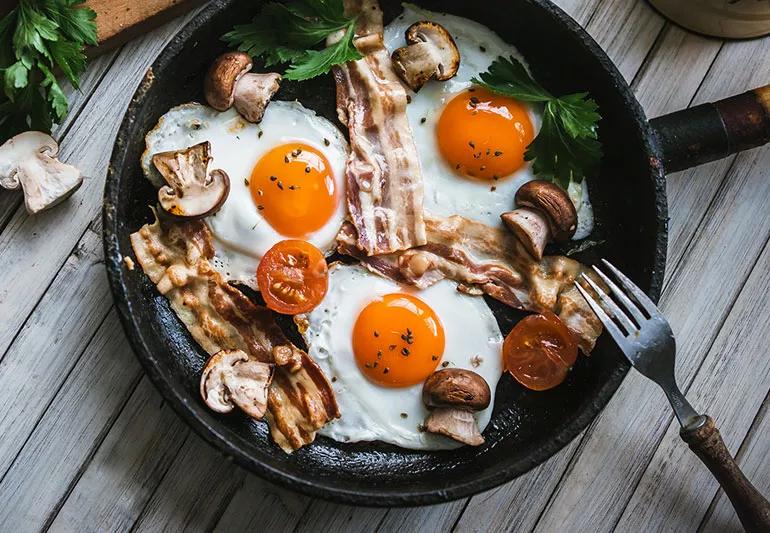Too much protein can be taxing on the kidneys

It’s a diet smorgasbord out there … and you want — no, you NEED – to know which one will get you results. You’ve finally picked your winner: a high-protein diet.
Advertisement
Cleveland Clinic is a non-profit academic medical center. Advertising on our site helps support our mission. We do not endorse non-Cleveland Clinic products or services. Policy
But before you start chowing down on steak, read the fine print: “Consult with your doctor before starting any diet plan.”
Too much protein can impact how your body works, and particularly how it gets rid of waste. Nephrologist Juan Calle, MD, has the lowdown on high protein.
Your kidneys play a critical role in your overall health. They filter waste, acids and extra water from your body. But eating all that protein takes a toll.
“Eating a lot of protein, especially animal protein and red meat, creates more acid and toxins in the body,” Dr. Calle explains. “And it puts more pressure on the kidneys to filter and process all of those substances.”
As we age, it’s normal for our kidneys to experience wear and tear. The added stress of a high-protein diet can contribute to kidneys losing their protein-processing powers. It becomes harder for them to keep the protein for your body to use, so more and more comes out in your urine.
“Protein that comes out in the urine is a reflection of kidney damage,” Dr. Calle says.
He notes that while there have been studies that seem to link protein-rich diets directly to kidney damage, the jury’s still out on these findings. So don’t panic, but do use caution.
Dr. Calle advises patients with chronic kidney disease to take the “better safe than sorry” route. “They probably should limit protein,” he says.
His advice also applies to people who have a history of kidney stones or certain rare genetic conditions like phenylketonuria (PKU). “That can put them at higher risk of forming kidney stones, which may potentially affect their kidney function, too.”
Advertisement
But even if your kidneys seem to be firing on all cylinders, it’s still a good idea to check with a doctor before making any drastic changes to what you eat. Diets aren’t one-size-fits-all. A doctor can help you find an eating plan that’s appropriate for your health goals.
For weight loss that won’t compromise your kidneys, it’s all about balance.
“Don’t get your calories from one source — combine protein with more fruits and vegetables,” Dr. Calle recommends. “If you don’t have any major medical conditions, the most effective diet is usually decreasing the amount of calories you consume and eating a more balanced, low-sodium diet.”
And buyer beware when it comes to the health fads that show up on social media. Your favorite Instagram celebrity may look amazing after following some new grapefruit shake diet, but stick with your doctor, nutritionist or dietitian for reliable eating advice.
Advertisement
Learn more about our editorial process.
Advertisement

Alternating between periods of eating and fasting may benefit your health

This plant-based eating plan focuses on lowering cholesterol, making it a great companion to the Mediterranean diet

Choose foods that are low in fiber and easy to chew and swallow

The flexible eating plan aims to boost your brain health by focusing on plant-based foods and limiting saturated fat

Designed to lower your blood pressure, this eating plan focuses on heart-healthy foods like whole grains, fruits and vegetables

Pescatarians don’t eat poultry, game or red meat, but they do eat fish and seafood, dairy and eggs

This eating style has many health benefits, including weight loss, an improved microbiome, and increased nutrient and mineral consumption

Research shows promising results from options like the DASH diet and Mediterranean diet

The tropical fruit is a good source of antioxidants and vitamin C

Most people fall asleep within 10 to 20 minutes, but if your experience is different, adjusting your sleep schedule may help

Exploring your hidden side can lead to better understanding of what makes you tick